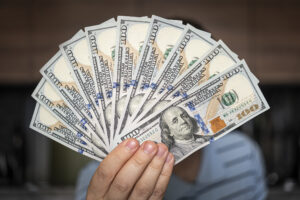 The calm in today’s Asian forex session belies a volatile backdrop forming beneath the surface. Dollar remains pinned near at bottom of the performance board this week, despite a shallow bounce. Investors are keeping their powder dry ahead of several key catalysts: Thursday's non-farm payrolls report, the looming July 9 tariff truce deadline, and a pivotal House vote on US President Donald Trump’s USD 3.3 trillion tax-and-spending bill. Volatility looks set to rise as these themes come to a head. The calm in today’s Asian forex session belies a volatile backdrop forming beneath the surface. Dollar remains pinned near at bottom of the performance board this week, despite a shallow bounce. Investors are keeping their powder dry ahead of several key catalysts: Thursday's non-farm payrolls report, the looming July 9 tariff truce deadline, and a pivotal House vote on US President Donald Trump’s USD 3.3 trillion tax-and-spending bill. Volatility looks set to rise as these themes come to a head. So far this week, Swiss Franc is the best-performing major currency, followed by Yen and Euro, suggesting defensive positioning remains intact. Sterling and Loonie trail the field after Dollar, while Aussie and Kiwi sit in middle positions. The US Senate narrowly passed Trump’s legislation overnight—thanks to a tie-breaking vote from Vice President JD Vance. The measure now faces another battle in the House before July 4, where Republicans hold only a slim majority. Passage would intensify deficit concerns already weighing on Dollar. Fed Chair Jerome Powell’s remarks at the ECB Forum yesterday were deliberately noncommittal, reiterating that all decisions depend on incoming data. With inflation still running above target and tariff uncertainty unresolved, most FOMC members have signaled reluctance to cut rates in July. Unless labor market weakness becomes more evident, the bar for near-term easing remains high. That puts even more focus on this week’s jobs data as the primary swing factor for Fed policy expectations and Dollar direction. On the European front, ECB officials have taken the unusual step of pinpointing Euro levels. Vice President Luis de Guindos said that EUR/USD levels above 1.20 could become problematic for inflation. Latvian Governor Kazaks flagged the combined impact of tariffs and a stronger exchange rate as a drag on exports. This shift signals a degree of discomfort with Euro’s 9% rise against Dollar since early April..... | 